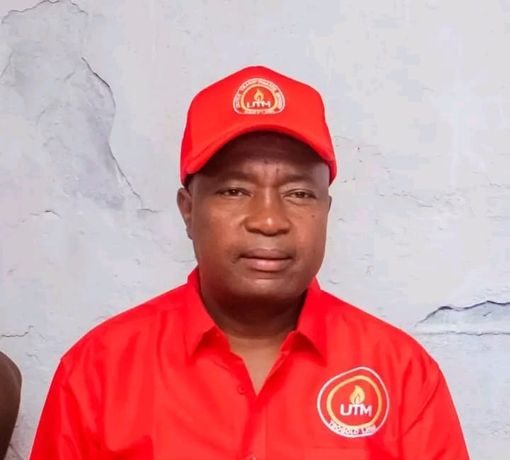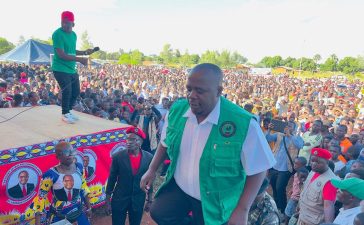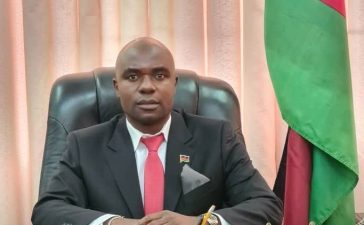By Edwin Mtambalika and Haswell Mussah
In the world of politics, the adage “absolute power corrupts absolutely” often rings true. The recent events surrounding the UTM National Delegates Conference are a stark reminder of the precarious balance between ambition, authority, and adherence to constitutional mandates within a political party. As we reflect on the controversy that has engulfed this convention, it becomes evident that both the management of the election process and the miscalculations of key figures led to significant breaches of UTM’s own constitutional provisions.
At the heart of the matter lies the National Elections Board, constituted under Article 8 of the UTM Constitution, which is entrusted with the critical responsibility of managing election processes within the party (as per Article 8.6).
However, it appears this body was sidelined as members, including the National Organizing Secretary, were co-opted into a factional agenda spearheaded by Kabambe. The Board is supposed to be appointed by the party’s president as per the said Article 8. Following the death of Chilima, Usi became the party’s president pursuant to Article 16(c) of the UTM Constitution.
Regrettably, Usi (who was not part of the DPP breakaway faction called Chilima Movement) was despised and sidelined by a faction led by Patricia Kaliati (the then Secretary General of the party) who thought was in full control of the party. Reality checked her out when it came to engineering the composition of delegates for the party’s elective National Delegates Conference.
The UTM convention is called National Delegates Conference (see Article 11). Who is eligible to be a delegate for UTM’s National Delegate Conference? According to Article 11(b), the following are eligible persons to be delegates for the purposes of UTM National Delegates Conference:
1. All national executive committee members.
2. Thirty (30) members of each regional committee selected for their seniority and holding first positions.
3. Governors, Secretaries, and Treasurer of the party’s three groups namely Main Body; Women’s Group and the Youth Wing of each political district.
4. All party members of Parliament, Mayors and Deputy Mayor’s from UTM.
Regrettably, the eligibility criteria for delegates, as prescribed under Article 11(b) of the UTM Constitution, were distorted. The delegates were, in fact remotely chosen by Kabambe through the hand of National Organizing Secretary who worked in cahoots with the party’s spokesperson Felix Njawala and the party’s Director of Youth, Penjani Kaluwa.
But there is more to this story than mere constitutional violations. Kaliati, the then Secretary General of UTM, in her quest for leadership, fundamentally misread her role and the situation surrounding her. While she believed she was at the helm of the convention, she had crossed a constitutional boundary that she should have been aware of. The authority to organize the convention does not rest with the SG but rather with the party President, as explicitly stated in the UTM Constitution. Her ambitions blinded her to her own limitations, inadvertently creating a vacuum that allowed Kabambe’s faction to exploit her missteps.
Kaliati’s self-allocated leadership role showcased a disconcerting sense of grandeur. She not only undermined the caretaker president but also created an atmosphere of chaos, one that invited opportunists like Kabambe to seize control of the party’s processes. In an ironic twist of fate, she positioned herself as a pawn in a power play where she believed she was the queen. This lack of clarity on her constitutional authority and her perceived leadership role culminated in a disastrous oversight that has now tainted the party’s reputation.
The fallout from the convention is not merely a procedural hiccup; it represents a deeper malaise within the UTM party and its leadership. It raises questions about the safeguards that are meant to preserve the integrity of democratic processes within the party and how easily they can be undermined by ambition and hubris. As memos of ambition turned to memos of chaos, the ambition of a few has cast a long shadow over the party’s foundational principles.
The width and length of UTM’s election crisis prints one one statement in bold: “The party is not committed to upholding the constitutional provisions that define itself”.
The seemingly innocuous actions of individuals such as Kaliati, driven by ambition rather than adherence to democratic norms, serve as a cautionary tale to all political actors within the party including Dr. Matthews Mtumbuka and Mr. Newton Kambala who are now crying foul play. Perhaps they have now gotten a lesson that institutional integrity must never be sacrificed on the altar of personal ambition.
In short, the events surrounding the UTM National Delegates Conference serve as a compelling reminder that leadership is not just about ambition but also about responsibility and respect for the rule of law. Only by adhering to the tenets of its constitution can UTM hope to build a resilient political environment that reflects the aspirations of its members and the people it serves, otherwise, it risks dissolving into oblivion and shambles.













